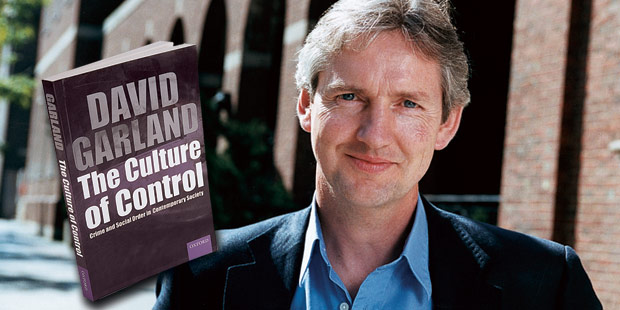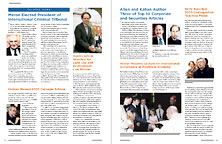Praise for The Culture of Control
Printer Friendly VersionProfessor David Garland’s book The Culture of Control was named one of the “Outstanding Academic Titles of 2002” by the magazine CHOICE: Current Reviews for Academic Libraries. This prestigious list reflects the best in scholarly titles reviewed by CHOICE. Selections are made based on criteria such as overall excellence in presentation and scholarship, and importance relative to other literature in the field.
Here is what others have said about The Culture of Control:
“With the publication of The Culture of Control David Garland has completed an important trilogy that was begun with Punishment and Welfare in 1985 and followed by Punishment and Modern Society in 1990…. Taken as a whole this trilogy represents a stunning achievement.”
Malcolm Feeley, professor of law, Boalt Hall, University of California at Berkeley, Theoretical Criminology
“The Culture of Control is unparalleled in its sophistication, breadth, and insight, and will undoubtedly serve as a reference point in the field—a field that Garland has done much to create.”
Katherine Beckett, associate professor, Department of Sociology, University of Washington, Law and Society Review
“David Garland’s book is deserving of the same landmark status in criminology as his earlier works…. It demonstrates yet again the power of the ‘sociological imagination’ he so skillfully deploys in the analysis of the contemporary landscape of crime control.”
Russell Hogg, faculty of law, Australian National University, Current Issues in Criminal Justice
“Garland’s book is more than just an important contribution to criminology. It is also a major work of social analysis [that] provides one of the clearest and most convincing characterizations of contemporary society in general.”
Robert Reiner, professor of criminology, London School of Economics and Political Science, The Times Literary Supplement
“The Culture of Control…is a persuasive, indeed compelling account of economic, social, and political transformations that not only addresses the topics at hand but also offers a model for scholarship in related areas. [It] is a vast and complex work that has the potential to recast our thinking about culture, crime, and social causation.”
John Gilliom, professor of political science, Ohio University, Law and Politics Book Review


 Multimedia
Multimedia